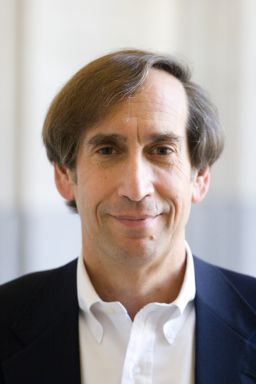Editor’s Note: Aaron David Miller is a vice president and distinguished scholar at the Woodrow Wilson International Center for Scholars and author of “The End of Greatness: Why America Can’t Have (and Doesn’t Want) Another Great President.” Miller was a Middle East negotiator in Democratic and Republican administrations. Follow him @aarondmiller2. The opinions expressed in this commentary are his.
Story highlights
Aaron Miller: The kinds of crises America faces today offer little chance for much heroic action
It may be time to stop expecting our presidents to be great and allow them to be good, he says
It’s now been 70 years since the death of Franklin Delano Roosevelt, America’s last undeniably great president. And if this year’s presidential campaign demonstrates anything, it’s that the American public’s expectations and aspirations for another genuinely popular, let alone great, president has for now gone the way of the dodo.
Indeed, polls consistently show Donald Trump and Hillary Clinton are the most unpopular major-party presidential nominees in history.
So, as they prepare to face off for their first debate, it’s worth asking: Why it has been so difficult to reproduce a candidate of the caliber of Roosevelt? In short, where has the greatness in the presidency gone?

Four factors have conspired to create this depressing tale.
Greatness is exceptional
First by definition, greatness in any dimension of the human enterprise is rare. Unlike other pursuits – art, music, literature, even sport – politics involves more formidable contingencies, making remarkable achievements in governing hard to accomplish. In fact, in 240 years of the Republic’s history, presidential historians have consistently identified only three undeniably great chief executives – George Washington, Abraham Lincoln and FDR.
(A handful occupy a second and third tier, with historic achievements at home and abroad, but with significant deficits and failings, too. Think Thomas Jefferson, Andrew Jackson, Theodore Roosevelt, Woodrow Wilson, Harry Truman, Dwight Eisenhower, Lyndon Johnson and Ronald Reagan).
Simply put, greatness in American politics is the exception, not the norm.
Tough act to follow
Second, Roosevelt set a bar of achievement so high that it’s impossible to imagine any future president surpassing it. Roosevelt led the country through its most terrifying economic crisis and to victory in its greatest war.
Ironically, when Republicans pushed through the 22nd Amendment to the Constitution back in 1951 to restrict a president to no more than two consecutive terms – in an effort to ensure that there would be no chance of another Roosevelt figure being elected to four terms – they virtually ensured the Democrat’s place in the pantheon of greatness.
The media effect
Third, the media can boost presidents, but it can also trivialize them. True, the media has been slamming presidents since the days of George Washington, often with a degree of vulgarity and vitriol that makes today’s press coverage seem tame by comparison. What has changed, though, is the non-stop nature of the coverage, its intrusiveness and the overexposure that tends to suck the aura of mystery away from our leaders.
FDR gave four fireside chats during his first year, and Americans hung on every word. Barack Obama delivered more than 500 speeches and sets of remarks during his, and yet for all that effort it’s doubtful whether many people listened to more than a few.
It’s also stunning to consider that immediately after President John F. Kennedy addressed the nation during the height of the Cuban Missile Crisis, the networks (all three of them) returned to normal programming. Those who watched Kennedy’s speech weren’t told what to think – or what the president had actually said – by a bevy of analysts with computers. Americans had to weigh Kennedy’s words and how he said them without mediation and background noise, making judgments on the man and the moment by themselves.
Fewer first-order crises
Fourth, the kinds of crises America faces today offer little chance for much heroic action of the kind the nation witnessed in years past. And by and large, that’s actually a good thing.
We don’t face quite the first-order crises that encumbered the nation for years – the Civil War, the Great Depression or World War II – precisely because we had heroic presidential leadership that successfully guided the nation through these difficult periods. Instead, our crises are more complex, somewhat systemic and often polarizing, eliciting a host of conflicting views – think immigration, entitlement reform, climate change and gun control, for example.
In our current highly partisan political climate (itself a barrier to being elevated to greatness) the issues facing the country tend to divide Congress and the bases of both parties rather than offer opportunities for a president to build consensus and unite the country. Add to that the public’s increasing loss of faith in our institutions, and you have a situation where government is seen not as a remedy, but as an obstacle to change.
Finally, perhaps it’s not such a bad thing that Americans are coming to grips with a more realistic conception of the presidency, particularly as the magnitude of a president’s responsibilities at home and abroad has mushroomed.
Perhaps the lesson in all of this is that we should stop expecting our presidents to be great and allow them to be good. Good in the sense that they are grounded morally, respect the law and the Constitution, and are competent and qualified to lead. Indeed, given the fact that demand for greatness in the presidency is always likely to exceed the supply, we may have no other choice.











